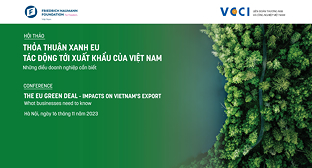WTO anti-dumping talks to carry on despite rift
26/12/2007 12:00
The mediator of the WTO's starkly divided anti-dumping talks pledged on 14/12/2007 to push on with the negotiations in 2008, but said it was currently "impossible" to reach the consensus a new global trade pact requires.
Guillermo Valles Galmes, the Uruguayan ambassador to the World Trade Organisation who chairs the Doha Round negotiations on "rules," said he hoped diplomats would shift their positions in intensified talks in January and February.
After that, Valles said he would release a revised version of his negotiating text that sparked outcry from Japan, China, Brazil, India, the European Union and others because it allows the United States to keep applying import penalties in a way the WTO has repeatedly struck down as illegal.
"As we stand today, it is completely impossible for me to do a revision," he told reporters at the WTO's Geneva headquarters.
"We have to discuss all these issues. This is clear. And that includes zeroing," he said, referring to the U.S. method of calculating duties on imports "dumped" on the American market at unfairly-low prices.
Valles said diplomats should in 2008 "get into a negotiating mode that in my view has not completely happened yet."
Friction over the rules text added to severe discord in separate sessions on agriculture, industry and services, where developing and developed countries are arguing about the size of needed tariff and subsidy cuts.
The WTO's 151 member states have to reach full consensus in all aspects of the talks to conclude the Doha Round, launched in 2001 with the aim of boosting global trade flows and removing obstacles to poor-country farmers in the global market.
HIGHER CHARGES
WTO judges have repeatedly struck down the U.S. method of calculating anti-dumping duties -- known as "zeroing" -- as contrary to international trade rules, because it results in higher-than-merited charges on goods entering the United States.
Washington insists the practice is allowable under global trade rules, penned in the 1994 Uruguay Round accord, and has signalled any agreement emerging from the 6-year-old Doha talks must recognise its validity.
International trade laws allow countries to impose duties on imported goods that are being sold for an unfairly low price that hurts domestic producers.
But under zeroing, some evidence used to calculate the degree of "dumping" taking place is
ignored. Critics say this makes it easier to conclude that dumping has occurred, and inflates the size of penalties applied.
The Japanese WTO ambassador, Ichiro Fujisaki, told diplomats this week that his country was concerned about a "negative impact of zeroing on future world trade." And China's ambassador Sun Zhenyu said that if all WTO members were to use zeroing, the level of protectionism worldwide would increase "which is clearly not the objective of this organisation."
Valles' rules talks also include negotiations over cuts to the fisheries subsidies that environmentalists say are causing an unsustainable depletion of the world's oceans.
The United States has welcomed proposed cuts as a good first step, while the European Union has warned they may stretch too far in a way that hurts port infrastructure and the aquaculture sector. India has said small-scale fishing in developing countries should be shielded from the decreases.
14/12/2007
Source: www.reuters.com
Các tin khác
- Exports face challenges despite enjoying robust growth (26/04/2024)
- Vietnam ranks fifth among aquatic product suppliers for Singapore (26/04/2024)
- Some firms likely to close due to higher anti-dumping tariff on plywood products in S Korea (26/04/2024)
- Foreign businesses increasingly seek export sources in Vietnam (26/04/2024)
- Japan's investigation into China's graphite electrodes to 'affect regional cooperation' (26/04/2024)
 Home
Home
 About Us
About Us




















